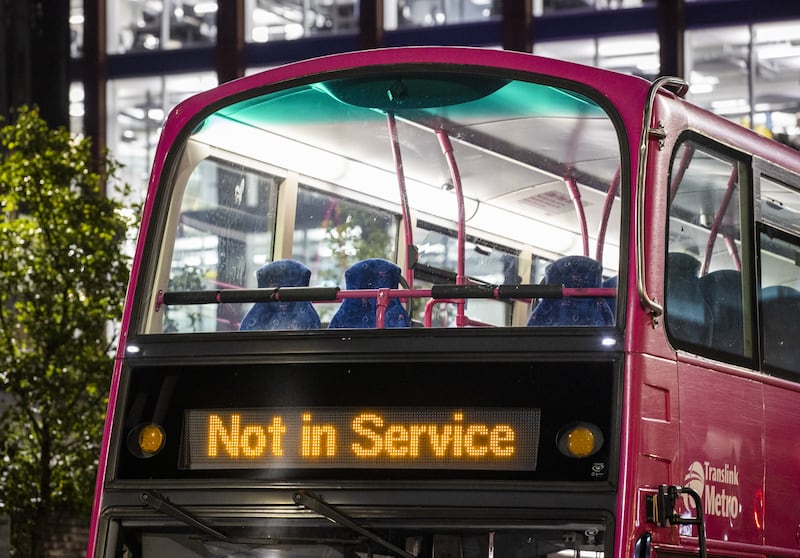Public transport unions have re-entered negotiations with Translink after rejecting an “inadequate pay offer”.
Translink management made an offer of a 5% increase plus a one-off payment of £1,500 for the 2023/24 financial year.
Train and bus drivers participated in a number of days of strike action before Christmas, bringing public transport services to a halt across Northern Ireland.

Translink workers also took part in one of the largest strikes in the region’s history in January, involving workers from multiple public sectors.
They called off a planned 72-hour strike last month following the pay offer.
The trade unions which represent public transport workers – Unite, GMB and Siptu – have confirmed their members “decisively voted to reject as inadequate the pay offer”.
They said bus and rail workers voted with majorities of approximately 70% to reject the pay offer.
The unions have confirmed they will hold fresh talks with Translink management to seek a resolution to the dispute, as well as engaging with their own memberships over the next steps.
In a joint statement, the unions said: “Following the ballot result, the unions will be holding fresh talks with Translink management to seek a resolution to the dispute.
“The unions will also be engaging with their own memberships to agree the next steps in their efforts to improve pay and address the mounting recruitment and retention difficulties in the public transport services.”









